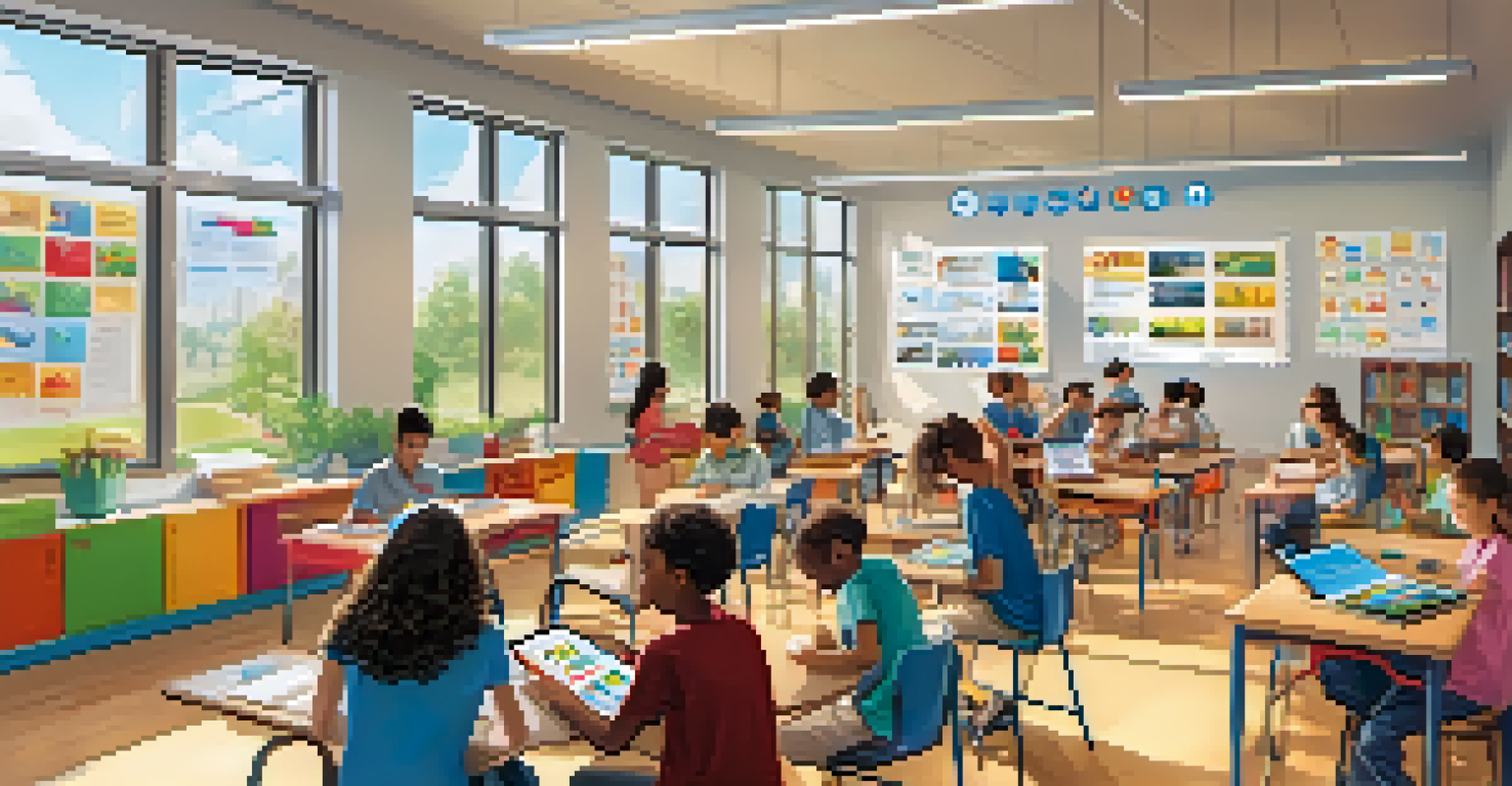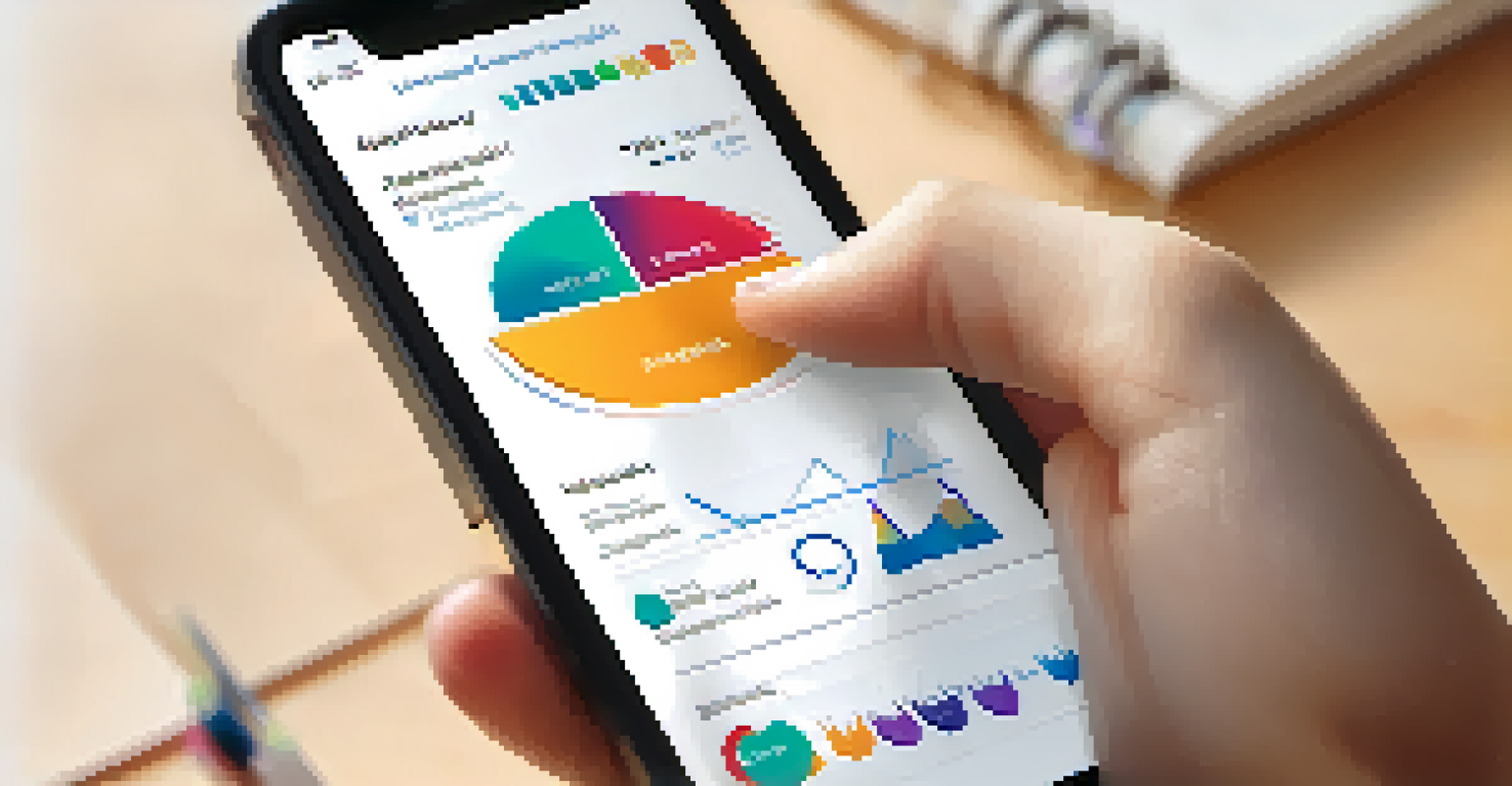Adaptive Learning and Mobile Technology: A Perfect Match

Understanding Adaptive Learning: A Personalized Approach
Adaptive learning is an educational method that customizes learning experiences based on individual needs. Instead of a one-size-fits-all approach, it uses data and algorithms to adjust content in real-time, ensuring students grasp concepts at their own pace. This personalization fosters deeper understanding and keeps learners engaged.
Education is the most powerful weapon which you can use to change the world.
Imagine a tutor who knows exactly when you’re struggling and adjusts lessons accordingly—that's adaptive learning in action. It continually assesses a learner's performance, identifying strengths and weaknesses, and tailors the curriculum to bridge gaps in knowledge. This method creates a more effective and enjoyable learning journey.
The growing demand for personalized education has made adaptive learning increasingly popular in various fields, from K-12 to corporate training. With its ability to cater to diverse learning styles, it empowers students to take control of their education, leading to improved outcomes and greater satisfaction.
The Role of Mobile Technology in Education
Mobile technology has revolutionized how we access information and learn. With smartphones and tablets, learners can engage with educational content anytime, anywhere, breaking down traditional barriers of the classroom. This flexibility ensures that learning can continue outside of formal settings.

Consider a student who can revisit a challenging math concept while waiting for a bus—mobile technology makes this possible. Apps and platforms provide instant access to resources like videos, quizzes, and interactive activities, enabling on-the-go learning. This convenience enhances the overall educational experience.
Adaptive Learning Personalizes Education
Adaptive learning tailors educational experiences to individual needs, enhancing engagement and understanding.
Moreover, mobile technology supports diverse learning preferences, catering to visual, auditory, and kinesthetic learners. It opens doors to a wealth of information and tools, making education more interactive and dynamic than ever before.
Combining Adaptive Learning with Mobile Technology
The fusion of adaptive learning and mobile technology creates a powerful educational tool. By leveraging mobile platforms, adaptive learning can reach learners when they need it most, personalizing their experience in real-time. This combination revolutionizes how education is delivered and accessed.
Technology will not replace great teachers, but technology in the hands of great teachers can be transformational.
For instance, a mobile app that adapts to a student's progress can offer additional resources or exercises based on their performance. As students engage with the content, the app learns their preferences and challenges, continuously optimizing their learning path. This responsiveness makes education more relevant and effective.
Additionally, this synergy encourages lifelong learning by making education accessible and engaging. Students can track their progress and receive instant feedback, fostering a growth mindset and motivating them to pursue knowledge beyond the classroom.
Benefits of Adaptive Learning on Mobile Devices
One of the standout benefits of using adaptive learning on mobile devices is increased engagement. Gamified elements, personalized challenges, and instant feedback make learning more enjoyable, keeping students motivated. This fun approach to education can transform even the most reluctant learners into active participants.
Furthermore, mobile devices promote self-directed learning. Students can take charge of their educational journeys, exploring topics that interest them while receiving tailored support. This autonomy boosts confidence and encourages a proactive approach toward learning.
Mobile Tech Enhances Learning Access
Mobile technology breaks down classroom barriers, allowing learners to access educational content anytime, anywhere.
Also, the accessibility of mobile technology means that education is no longer confined to traditional settings. Learners from various backgrounds can benefit from quality educational resources, regardless of their circumstances, promoting equity in education.
Challenges in Implementing Adaptive Learning Mobile Solutions
Despite its many advantages, implementing adaptive learning through mobile technology does come with challenges. One significant hurdle is ensuring that all students have access to the necessary devices and reliable internet connections. Without this foundation, the benefits of adaptive learning cannot be fully realized.
Additionally, developing high-quality adaptive learning content requires time and resources. Educators and developers must work together to create engaging materials that can adapt effectively to different learning styles. This collaborative effort is crucial for success but can be resource-intensive.
Lastly, there’s the need for ongoing professional development for educators. They must be equipped with the knowledge and skills to effectively integrate adaptive learning technologies into their teaching practices. This training is essential to maximize the potential of these innovative tools.
The Future of Adaptive Learning and Mobile Technology
Looking ahead, the future of adaptive learning and mobile technology appears promising. As AI and machine learning continue to advance, we can expect even more sophisticated adaptive learning systems that provide deeper insights into student performance. This evolution will allow for even greater personalization and effectiveness in education.
Moreover, the increasing prevalence of mobile devices in everyday life suggests that education will continue to become more integrated into our daily routines. Imagine a world where learning is seamlessly woven into all aspects of life, making knowledge acquisition a natural part of the day.
Future of Learning is Adaptive and Mobile
The integration of adaptive learning with mobile technology promises a more personalized and effective educational journey.
This future not only enhances the learning experience but also prepares students for a rapidly changing world. By equipping them with the skills and knowledge they need, we can help create a generation of lifelong learners ready to tackle tomorrow's challenges.
Conclusion: Embracing the Future of Learning
In conclusion, the combination of adaptive learning and mobile technology offers exciting possibilities for education. By personalizing learning experiences and making them accessible anytime, anywhere, this approach addresses the diverse needs of learners. It's a game-changer, fostering engagement and promoting self-directed learning.
As we continue to embrace these innovations, it's essential to address the challenges that come with them. By investing in resources, training, and equitable access, we can ensure that all learners benefit from this new approach to education.

Ultimately, embracing adaptive learning and mobile technology is not just about keeping up with trends—it's about enhancing the learning experience and preparing future generations for success in an ever-evolving world.